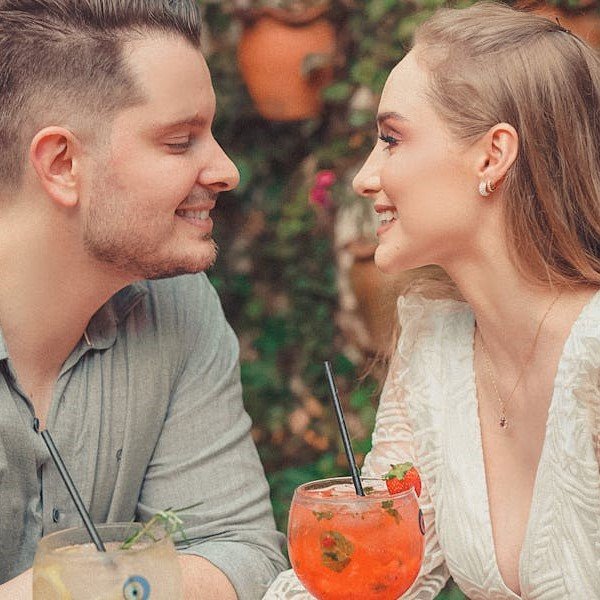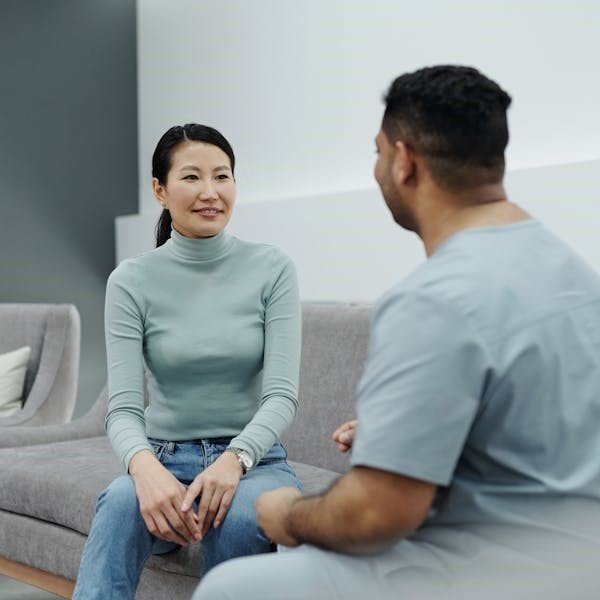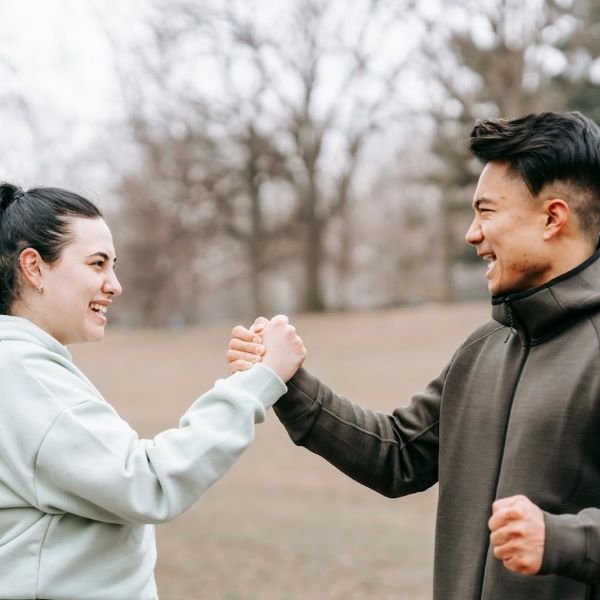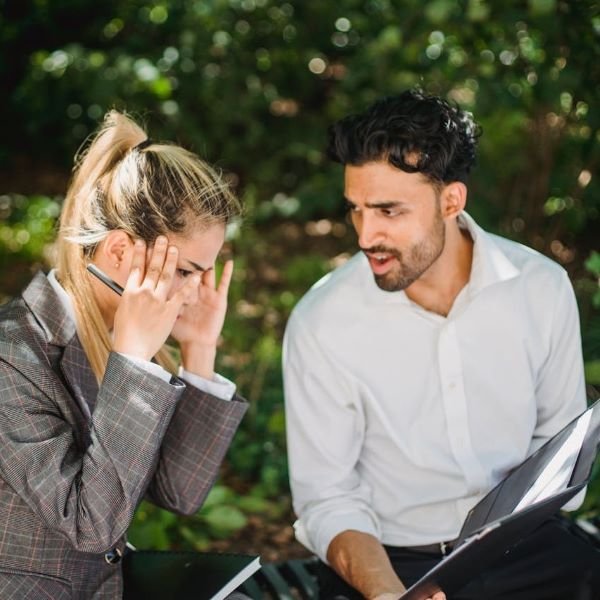Introduction
Through the passage of time, I have learned that one tool which is most effective in improving relationships is taking time to listen attentively. In a world where speaking seems to be preferred by all, listening carefully has become an art that few possess. When my relationships were still young, I would find myself concentrating on how to respond instead of actually taking in what the other person had to say. It was only after I practiced active listening that I saw true improvements in how I connected with people.
This form of communication involves more than just auditory reception. To listen actively means giving your full attention, identifying what someone is feeling beneath their words and showing that you take their perspective seriously enough for validation purposes. It doesn’t matter whether it is a lover, buddy or relative with whom you exercise this form of listening; it will help increase trust levels and create stronger bonds based on empathy. Today, we will discuss why this aspect forms the cornerstone of any effective communication and suggest ways by which we may pay attention better. It is more than just communication; it strengthens relationships leading to better emotional health, closeness and the ability to withstand disagreements.
Table of Contents
Understanding What Active Listening Really Means
Active listening isn’t just about being quiet when someone speaks. It’s really about giving them your complete focus making a real effort to grasp what they’re trying to say. For a while I thought nodding and keeping eye contact was sufficient, but I discovered that true active listening actually involves asking questions for clarity reflecting feelings and showing you genuinely care. It’s about tuning in to not just the words but *how* they are said noticing the tone the pauses and body language.
This kind of listening demands that we are fully there in the moment. That can mean setting aside distractions putting away your phone muting the television and quieting that inner voice. When I began doing this I found my conversations felt far more linked people could see I was truly interested which naturally encouraged them to share more. The entire feel changed from just an exchange to something deeper and more impactful I started understanding people better with real empathy.

Building Trust and Emotional Safety
Get this: trust is the real base for any relationship that’s going okay, and actively listening? That plays a super big part in getting that trust built up. When someone actually feels like you’ve heard them they feel like they matter you know? I recall this time my partner needed to talk about their job. Instead of instantly jumping in with fixes I just tuned in and acknowledged how tough it sounded. That easy act of listening? It made her feel backed up and made us closer too. I figured out sometimes the best help isn’t about giving answers its more about being there.
Feeling emotionally safe that’s about knowing you can share what you think and feel without getting judged or just dismissed Active listening carves out that space. When I reliably show up listen with understanding it lets my loved ones know they can just be themselves when I’m around. It’s the foundation for more honest talking being vulnerable and getting close emotionally and I’ve seen for myself how relationships do really well when both folks feel safe expressing things.
Preventing Misunderstandings and Conflict
Miscommunication, a frequent issue sparking conflict within relationships. Personally I’ve seen many arguments rooted in assumptions or simply mishearing. Engaging in active listening is key catching these mistakes early on encouraging checks for clarity. Rather than simply reacting on perceived meaning, asking “Did you intend this?” before conclusions helps greatly. This small change can prevent such drama.
The practice of paraphrasing and checking our understanding significantly cuts down on miscommunication odds. Initially, it may feel less than natural, but this uncomplicated method offers substantial benefit avoiding pointless argument. Through experience, I’ve noticed this skill cultivating conversations more peaceful respectful overall. Partners begin interacting more cooperatively like allies facing a common problem instead of being adversaries, making a great deal of difference when tackling shared issues.

Strengthening Emotional Intimacy
Getting close emotionally happens when someone really sees you hears you and gets you. A big moment for me in my relationship was sharing something private and my partner didn’t cut in or get critical, she just really listened. Her just being there made me feel super connected. It showed me that getting emotionally close isn’t about big stuff—it happens in those quiet moments when someone is truly paying attention.
Listening closely helps build this kind of closeness. When we really tune in to chats we understand not just the words but how they’re feeling too. This connection brings people nearer helps partners feel safe and appreciated. It’s during those quiet moments of understanding that trust gets stronger and love feels more solid lasting longer.
Enhancing Communication Skills
Getting good at active listening has really boosted my communication skills overall. I find myself being more patient, noticing those nonverbal cues better and handling my emotions in tough talks. Listening actively makes me slow down you know focus on understanding instead of just reacting. I’ve also picked up how to reflect back what I hear so the other person feels like they’re really being heard.
This has made me communicate way better in pretty much every part of life. Whether it’s a meeting at work a chat with a friend or a serious talk with my partner the skills from active listening help me get my point across clearer and listen more openly too. Communication feels like a real two-way street now where everyone feels heard and understood leading to interactions that just feel more productive and rewarding.
Creating Mutual Respect
Respect in relationships goes both ways, and actively listening is a key part of showing that. When I truly make the effort to listen I’m basically saying “Your thoughts and feelings are important to me.” That communicates a lot. Over time, this mutual respect builds a relationship that’s healthier and more even. It sets things up so both people know they’re equally valued and appreciated.
I’ve seen that when I show folks I respect them enough to listen deeply they tend to give that respect back. It becomes this positive cycle. Listening encourages more listening and respect brings more respect. This straightforward act has made lots of my relationships better for me. It helps create a vibe where people work together instead of arguing and kindness takes the place of getting defensive.

Practicing Empathy and Compassion
Empathy is truly the core of active listening: it’s not simply about hearing words – it’s about genuinely feeling alongside someone. There have been moments I wasn’t sure what the “right” words were, but being there, present with empathy I found comfort and support could still be offered. In those moments, it dawned on me that good listening is actually less about handing out solutions and more about extending understanding.
This compassionate listening means stepping into the other person’s perspective. It involves tuning in without judgment providing kindness even if the chat gets tough. Such presence can be remarkably healing and often proves more valuable than any advice or fix you might offer. When we listen empathetically we help others feel truly validated supported strengthening emotional bonds and trust.
Making Active Listening a Daily Habit
Active listening is a skill that grows stronger the more you practice it much like playing an instrument or baking. The author integrates this technique into everyday interactions such as dinner conversations with a partner or chats with friends; it is an intentional choice – one must deliberately focus and pay attention and through repetition it feels second nature. It shapes how one interacts with reality itself going beyond mere talk towards truly seeing and meeting the requirements of those around you.
Occasional lapses still occur particularly if one feels anxious or preoccupied. Nonetheless one can train oneself to recognize these moments breathe deeply and re-establish engagement. The core idea behind active listening isn’t flawlessness but concentrated effort. This work is always justified though because whenever you decide to listen completely you’re strengthening relationships incredibly important to you.

Conclusion
Active listening has truly changed how I connect with others. It is not always easy, particularly in this busy, noisy world; but it has become one of the most deeply rewarding practices for me. With active listening I’ve built much stronger relationships with people and enhanced my emotional links. It’s helped me become more compassionate – a more grounded individual.
Thinking about improving relationships? Begin with your listening abilities. Be fully present, have patience and display empathy. It’s amazing just how much more connected you can feel to loved ones. Such an important communication journey starts from just one uncomplicated act listening deeply with real intent.
FAQs
Q1: What is really the difference, you know, between just hearing someone and actual active listening?
A1: Hearing is fairly passive—you basically just receive the sound. But active listening that’s intentional you’re really focusing on understanding not just the words but the whole message and what they’re feeling too.
Q2: Can active listening make a difference, maybe help sort out conflicts?
A2: Absolutely it does. It’s great for clarifying those silly misunderstandings plus it shows the other person hey you value what they think, which can definitely calm things down.
Q3: How do I even get started with this active listening when my mind just wanders easily?
A3: Start doing it in little ways—first put away things distracting you look them in the eye and just repeat back what you heard to be sure you got it right. Mindfulness exercises can help your focus get better over time too.
Q4: Is active listening actually useful outside your love life or is it limited there?
A4: Definitely it is useful. It matters in friendships dealing with family dynamics even at your job. Wherever people are communicating active listening can make your connection stronger plus boost understanding everywhere.



